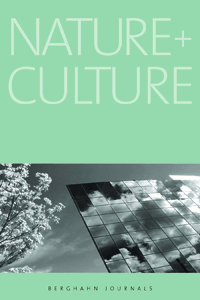 The following is a guest blog post from Stefan Böschen, Jochen Gläser, Martin Meister, and Cornelius Schubert, guest editors of Nature and Culture Volume 10, Issue 3.
The following is a guest blog post from Stefan Böschen, Jochen Gläser, Martin Meister, and Cornelius Schubert, guest editors of Nature and Culture Volume 10, Issue 3.
Our interest in compiling this special issue was sparked by a curious imbalance that prevails in the recent turn to materiality in social research. The current proclamations for (re)considering materiality are mostly levelled at theoretical conceptualizations. Framing materiality as a theoretical challenge is of course necessary, but this debate has little to say about how to deal with materiality in terms of empirical research. We think that considering materiality as a purely theoretical challenge is taking the second step before the first. What might be even worse is that decoupling conceptual treatments of material agency from empirical research makes the “material” of material agency itself disappear behind abstract concepts. It seems that although there is substantial interest in the research on materiality and agency, there also is a marked carelessness, if not helplessness, to how deal with this challenge in empirical research.
Against this background, we ask why materiality is so difficult to deal with in terms of research methods. Is it because our methods intrinsically strip social phenomena from their material substrate? Do they implicitly or explicitly favor cultural aspects of social life over material ones? Or do social scientists simply lack the methodological knowledge to adequately deal with material agencies? It is clear that these questions indeed will not be answered easily. Indeed, even the advanced approach of Actor-Network Theory, although providing fruitful insights into the relevance of materiality for understanding social phenomena, is curiously silent when it comes to questions of which methods to use or how to proceed in order to empirically study material agency.
There are of course no simple answers to these questions. This is why we compiled the special issue around concrete empirical cases and the methodological challenges they face. We wanted to collect and juxtapose specific research problems concerning material agency and the ways in which they are addressed by research designs in different fields. In most cases, social research methods analyze what people do with things, how they talk about them, how things are being exchanged or evaluated. They aim at picking up the resonances of materiality as they are transmitted through the medium of the social—i.e. by looking at things in terms of the meanings humans attach to them. This is by far the most common way to proceed and there are good reasons to do so. However, this approach has a serious limitation. Material agency unfolds not only indirectly through actors’ construction of it, but also quite directly (and sometimes brutally). Our success in crossing a frozen lake depends not only on our assumption that the ice will be thick enough (which allows us start across) but also on the actual thickness of the ice (which contributes to our successful arrival). Thus, social constructions and material agency may “disagree”, and these disagreements affect the socio-material phenomena we investigate.
Although theoretical considerations will always be part and parcel of the contributions in this special issue, we are very happy that we could assemble a good number of papers that explicitly re-think material agency as a challenge to empirical research. Coming from their respective fields of archaeology, design and sociology, they give insights into their methodical approaches and show how the theme of the special issue becomes relevant within their specific domains. This we hope will help to set material agencies, research methods and theoretical consideration into more balanced proportions.
Table of Contents:
Introduction: Material Agency as a Challenge to Empirical Research
Stefan Böschen, Jochen Gläser, Martin Meister, and Cornelius Schubert
Lost in Things: An Archaeologist’s Perspective on the Epistemological Potential of Objects
Philipp W. Stockhammer
The Internet as Material Object in Social Practices: Recording and Analysis of Human-Internet Interactions
Tanja Carstensen
Cold Atom Gases, Hedgehogs, and Snakes: The Methodological Challenges of Comparing Scientific Things
Jochen Gläser and Grit Laudel
Design Rhetoric: Studying the Effects of Designed Objects
Annina Schneller
The Drug as Thing
Anna Henkel
Social Situations and the Impact of Things: The Example of Catholic Liturgy
Torsten Cress
